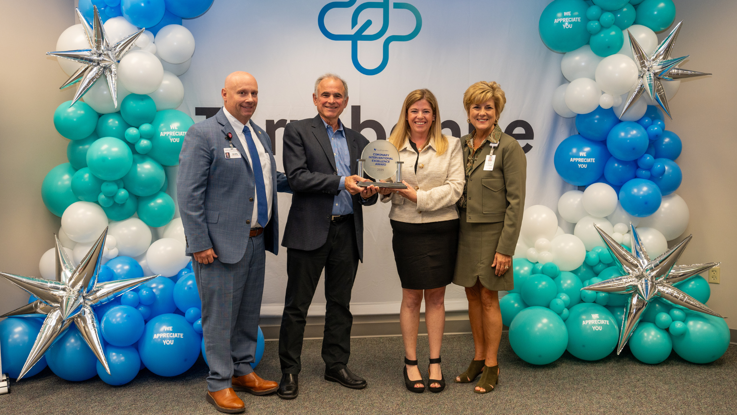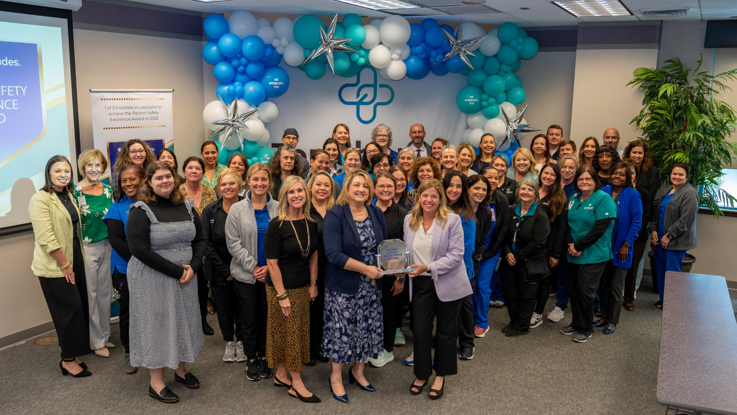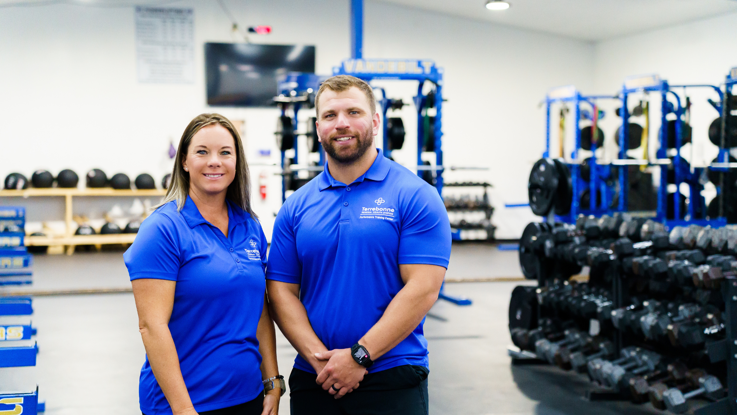Cardiologists Dr. Peter Fail and Dr. Shane Prejean performed the first Watchman device implants
- Category: News
- Posted On:
- Written By: Bevi Jimenez

HOUMA – Cardiovascular Institute of the South (CIS) interventional cardiologists Dr. Peter Fail and Dr. Shane Prejean performed the first Watchman device implants today in the Cardiac Catheterization LabTerrebonne General Health System. The procedure is done to prevent a stroke caused by atrial fibrillation, a common heart arrhythmia condition.
The Watchman device is a one-time heart implant that reduces stroke risk related to atrial fibrillation and eliminates the need to take blood thinners. About the size of a quarter, the Watchman device is placed into the left atrial appendage (LAA) of the heart, where 90 percent of stroke-causing blood clots are formed. The device permanently closes off this part of the heart to keep blood clots from escaping. This non-invasive procedure takes about an hour in a cardiac catheterization lab or hybrid operating room, and the post-procedure hospital stay is one day, with the possibility of being discharged home the same day.
“For patients who are dependent on blood thinners due to atrial fibrillation, this is a life-changing procedure,” explained Dr. Fail. “Within 45 days of the implant, 90 percent of patients are able to stop taking blood thinners, giving them back quality of life and eliminating medication side effects.”
About two to three million people in the U.S., most with atrial fibrillation as well, need to take blood thinners like Coumadin or Warfarin to reduce their risk of stroke. However, patients on blood thinners are unable to work certain jobs, like in construction or plant environments. These patients are also often required to make frequent visits to a clinic for blood tests to monitor and manage their blood thinner medication.
“A patient with atrial fibrillation is five times more likely to experience a stroke, and it is critical for these patients to take blood thinners as prescribed,” said Dr. Prejean. “However, for patients who qualify, this new treatment offers a safe alternative that removes long-term risks and management associated with blood thinners.”
To learn more about the Structural Heart Program at CIS, or to schedule an appointment, visit www.cardio.com.



